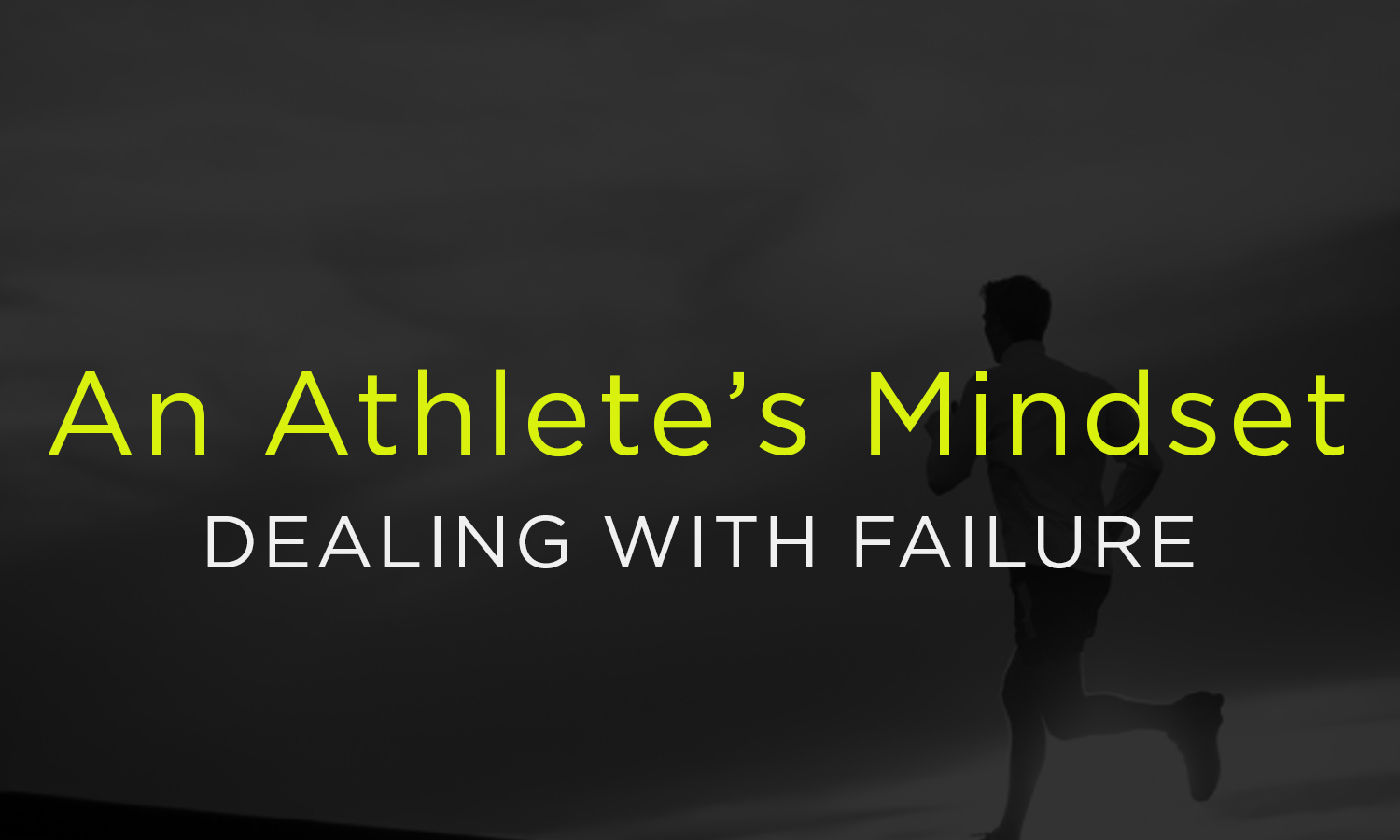
Most of us have been in a situation where we set a goal, work hard towards achieving that goal and then we don’t get the result that we had hoped for. Athletes go through this process all the time and sometimes they succeed and sometimes they fail. Why is “fail” such a bad word like some of the other four letter words we know? The answer, I believe, has to do with our culture. Many of us grew up learning that failing is a bad thing so we have come to fear it. I am here to tell you that failing can be a good thing but it depends on how you respond to it.
I have failed many times in my life and most definitely in sport. However, as an athlete, I have learned to deal with failure in a positive way and have used those experiences to help me be successful. From a coaching perspective, I frequently come across athletes who have a really hard time dealing with failure. The fact that they did not accomplish the goal that they had set out to achieve leaves them in a very negative state of mind that can last for a long time. That negative head space, whether its anger, sadness, or confusion will impact an athlete’s ability to regroup, focus and perform. In some cases, those emotions will chip away at their self-esteem and may become a barrier to future goal setting and performances. So how can you overcome failure and see it as a positive experience? Below are some strategies and tips that will help.
- Take comfort in knowing that ALL athletes fail, even the best athletes in the world. The best professional golfers don’t win every tournament that they enter and the best professional teams don’t win all of the games that they play yet they all are considered highly successful athletes. Successful athletes fail multiple times and their successes have been a result of dealing positively with failure.
- Set a time limit on how long you react negatively to failure. As a coach, I suggest that you have 30 minutes to think about the things that didn’t go well and allow yourself to be frustrated or angry, but that is it. After that 30 minutes is up, record all of the things that did go well so that you can refer back to them. Do not allow your thoughts to travel back to the negative experiences you had and refer back to the positive things that you wrote about instead. This is a skill that needs training and may take some time, so be patient. Some athletes even completely forget about the negative things that happened to them which helps them move on from bad performances.
- Failure builds mental toughness and resiliency. Accepting failure is essential to building mental toughness and resiliency so that you can recover from mistakes more easily. For example, a triathlete may start off his race with a terrible swim and become flustered but if he chooses to let his swim performance go and stay focused on the rest of the race, he increases his chance of having a good bike and run. In some cases, he may become more motivated to do well for the rest of the race because of his poor swim.
- Failure allows for reflection and maybe an adjustment of goals/expectations. Successful athletes work very hard to achieve their goals and sometimes all of that effort still doesn’t yield the desired result. In a situation like this, there is an opportunity to assess the preparation that was done and make any adjustments. It could be a nutrition change, a coaching switch or a focus on improving weaker skills. In some cases, the athlete may have to revisit and adjust their goals in order to better reflect their abilities. Failure can provide an opportunity for learning and growing which can ultimately help an athlete become successful. Understanding a need for change and being flexible are important attributes to have as an athlete.
In the end, failure does not have to be viewed as just a negative experience. Instead, it can be used in a positive way and as a tool to better your athletic performance.
Kristina Plachecki / Personal Training Lead / Coach
kristina@getmomentum.ca / 905.537.4733


